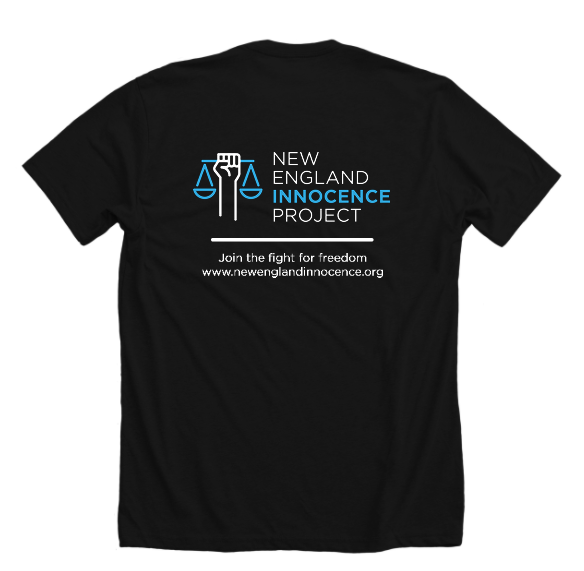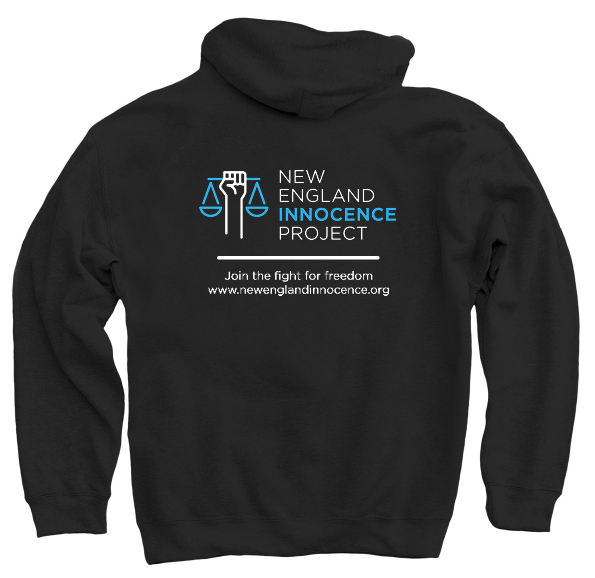Photo credit: Boston Globe
My name is Sean Ellis and I was wrongfully convicted and imprisoned for nearly 22 years for a crime I did not commit. I've been through a horrendous ordeal and as a result, I have been deeply hurt. I have been vilified in the public eye, I have suffered injuries, I have suffered pain, and I have suffered tremendous loss. However, despite this grave injustice, I refuse to be broken. I am unwilling to allow these trials and tribulations to define who I am or put me in a space of inertia or defeatism. This concept of being wounded but not broken isn't isolated to those who have suffered at the hands of the criminal legal system; it encompasses those who have endured whatever hardships that life has thrown at them and have pushed back against it, refusing to let it crush them, and sought a path toward healing.
How does it feel to still be fighting for some semblance of justice after nearly 30 years?
As I await the Court’s ruling on my motion to overturn my wrongful convictions, I am reliving everything I’ve experienced while fighting this case for more than 28 years. During that time, I lost so much: My dad died, my firstborn nephew died, my next door neighbor died, two very close aunts (both of whom I grew up with) died, my best friend died, and my mother was diagnosed with cancer. They all lived in Massachusetts, but I wasn’t allowed to attend their funerals. The Department of Corrections didn’t allow it because of the Life Without Parole sentence that I was serving. This not only speaks to the inhumaneness of such a sentence, but it also speaks to the trauma and harm I’ve endured at the hands of the Boston police department and the criminal legal system. When I think about the impact this wrongful conviction has had on my life, I can’t help but think about some of these things, along with the fact that while my mom continues to live, she has more years behind her than she has in front of her. While my loved ones are happy to have me home, I can’t help but think about the detrimental psychological effects of incarceration, which have negatively impacted the quality of the relationships that I have with my siblings. I am able to keep fighting because, though I am wounded by all of these losses, I remain unbroken.
What would it mean to be fully exonerated of all your wrongful convictions?
I know all too well that the Commonwealth is not usually in the business of pursuing justice, nor are they in the business of exonerating people. They are in the business of obtaining and sustaining convictions at all costs. If this was not their standard operating procedure, I would have never spent a day in prison for a crime I did not commit. I would have been released in 1998 when the information my attorneys and I were seeking (but the former DA’s office withheld) resulted in the arrest of the low-level players in the corruption scheme. I would have been released when it was learned that in 1994, a year after the murder of Detective Mulligan, there was a simultaneous investigation underway into the conduct of the detectives on my case, Detectives Acerra, Robinson, and Brazil. I would have been released once it became known that Detectives Mulligan, Acerra, Robinson, and Brazil, along with their supervisor, were present and participated in the kidnapping and robbery of local drug dealers just days before Detective Mulligan’s murder. The former police commissioner knew the victim was involved in corruption and still placed this cadre of dirty cops amongst who he called “the best and the brightest.” Remember these names…Acerra, Robinson, and Brazil…they infected every aspect of the Commonwealth’s case against me, from the murder to the armed robbery, and right on down to my remaining firearm charges. They cannot be parsed apart.
So, when I think about a full exoneration, I first have to divorce myself from the reality of what I know and have experienced personally. What I can and will say is that for someone to exonerate Sean K. Ellis, the person making that decision has to be of such extraordinary character that they’re willing to go against the status quo in order to do what is right and what is just! I say extraordinary character because racism and biases exist within the criminal legal system. Both racism and biases exist within the Office of the District Attorney. Judge Ball exonerated me when she said that “justice was not done” and the Supreme Judicial Court exonerated me when they affirmed Judge Ball’s decision and referred to the revelations of the withheld evidence, specifically the involvement of Detective Mulligan in the corruption, as a “game-changer.” I am grateful DA Rollins brought the fortitude and integrity of her life experiences with her to the Office when deciding to assent to my motion for new trial. I hope that the Court will agree and allow the DA’s office to drop the charges, as they have committed to do, so I can move on with my life.
Why is public acknowledgment of mistakes or injustice so important for people who have been wrongfully convicted?
Public acknowledgment is so important to the exoneree (depending on who you ask) because, as it was in my case, I was vilified in the public eye. I was vilified to a group of 16 people, 12 of whom decided my fate. That group of 12 people were given a false narrative and, as a result, they wrongfully convicted me. I was sentenced to spend the remainder of my natural life in prison based on this false narrative. A public acknowledgment of mistakes and wrongdoing is equally as important, if not more important, for the proponent of the false narrative, because it’s an opportunity for them to take a step toward justice and say, “Wait, I am not ok with this and I’m not going along with the wrong that was done to this individual.”
Public acknowledgement of injustice in my case is also vitally important because there has been an admission of wrongdoing on the part of the Boston Police Department. Therefore, there should be an investigation, not just into my wrongful conviction, but all convictions involving the Boston Police Department obtained during the years these corrupt officers were on the force.
As a community, it is our responsibility to fight to ensure that police departments, in particular, and DA’s Offices are operating with transparency and accountability. Despite how formidable they are, you have the right and the capacity to fight injustices perpetuated by these departments, and we all stand with you in that fight.
Sean is a motivational speaker, and a staunch advocate of criminal justice and prison reform. He is a co-founder of the Exoneree Network and serves as a Trustee on the board of the New England Innocence Project. Sean is a recipient of the 2021 Boston Mountaintop Award for advocacy related to Black innocence within the criminal justice system. Sean’s recently released Netflix Docu-Series, Trial 4 has elevated his voice internationally as he continues to speak about his experiences with racism and injustice within the criminal justice system. Learn more about Sean’s story at www.TrialFour.com.
-----
Learn More
The Law Offices of Rosemary Scapicchio, the New England Innocence Project, and the CPCS Innocence Program hosted a virtual press conference March 17 in response to District Attorney Rachael Rollins filing in Court assenting to the motion for a new trial for the remaining gun convictions for Sean Ellis. Watch the press conference video below or click here.

























































































